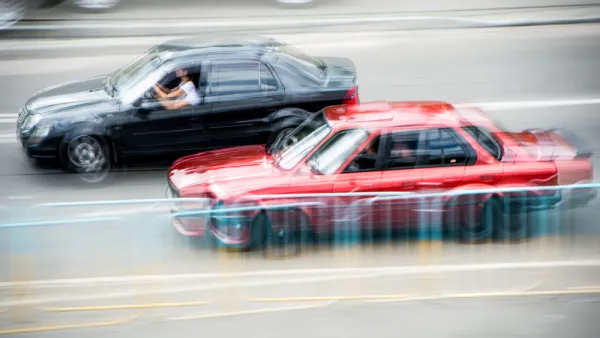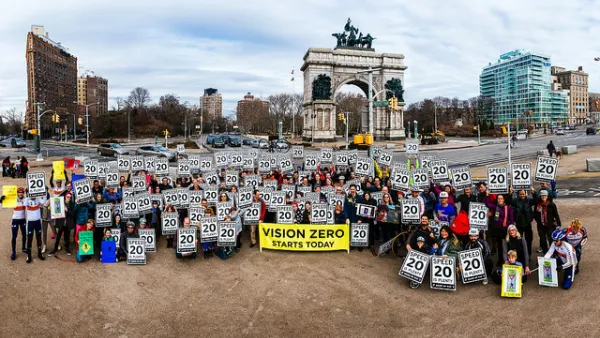While advocates say technology can be a critical tool in reducing the carnage on U.S. roads, CNN can't get over the idea as an invasion of privacy and personal liberty.
CNN recently reported on air, in a clip shown above but also picked up widely by local news around the country, that the National Transportation Safety Board recently announced a recommendation to require automakers to limit the speed of cars.
"The NTSB is calling on the federal government to start incentivizing carmakers to put smart speed limiter systems in new cars," according to an article by Pete Muntean sharing the report. Speed limiters work by cross referencing local speed limits and a car’s GPS position, explains Muntean. Speed limiting technology is recognized for its potential to benefit traffic safety if applied to cars. So far, the technology has only been applied at scale to electric scooter rental companies, however.
Erin Marquis, writing for Jalopnik, responded to the CNN report with a highly critical response to the television's framing of the news, describing the video shown above as " surprisingly and completely dishonestly reported."
Listen, I get it: Who doesn’t like a snappy headline that clicks well? A premise that will get folks active in the comments and lead them to hitting those all-important like and subscribe buttons. But what NTSB actually did was recommend a timetable to put together incentives for automakers that put speed limiters in new cars. Not sure how you get from that to “Our cars are in danger of being monitored and controlled by the government!” Even CNN admits, this “limitation” could come in the form of an audible or visual warning—a feature already familiar to anyone with a newer vehicle.
Marquis notes that NTSB's suggestion isn't even the most aggressive of the options. Intelligent Speed Assistance, like already required on new cars in Europe, is the other option. "Several American automakers, like Ford and Jeep, got a head-start and have been installing the tech in European models for years. A new pilot program in New York City put ISAs in 50 government fleet vehicles — the first city in the nation to do so," explains Marquis.
FULL STORY: Feds Recommend Speed Limiting Technology in New Cars: Everybody Panic

National Parks Layoffs Will Cause Communities to Lose Billions
Thousands of essential park workers were laid off this week, just before the busy spring break season.

Retro-silient?: America’s First “Eco-burb,” The Woodlands Turns 50
A master-planned community north of Houston offers lessons on green infrastructure and resilient design, but falls short of its founder’s lofty affordability and walkability goals.

Delivering for America Plan Will Downgrade Mail Service in at Least 49.5 Percent of Zip Codes
Republican and Democrat lawmakers criticize the plan for its disproportionate negative impact on rural communities.

Test News Post 1
This is a summary

Test News Headline 46
Test for the image on the front page.

Balancing Bombs and Butterflies: How the National Guard Protects a Rare Species
The National Guard at Fort Indiantown Gap uses GIS technology and land management strategies to balance military training with conservation efforts, ensuring the survival of the rare eastern regal fritillary butterfly.
Urban Design for Planners 1: Software Tools
This six-course series explores essential urban design concepts using open source software and equips planners with the tools they need to participate fully in the urban design process.
Planning for Universal Design
Learn the tools for implementing Universal Design in planning regulations.
EMC Planning Group, Inc.
Planetizen
Planetizen
Mpact (formerly Rail~Volution)
Great Falls Development Authority, Inc.
HUDs Office of Policy Development and Research
NYU Wagner Graduate School of Public Service





























